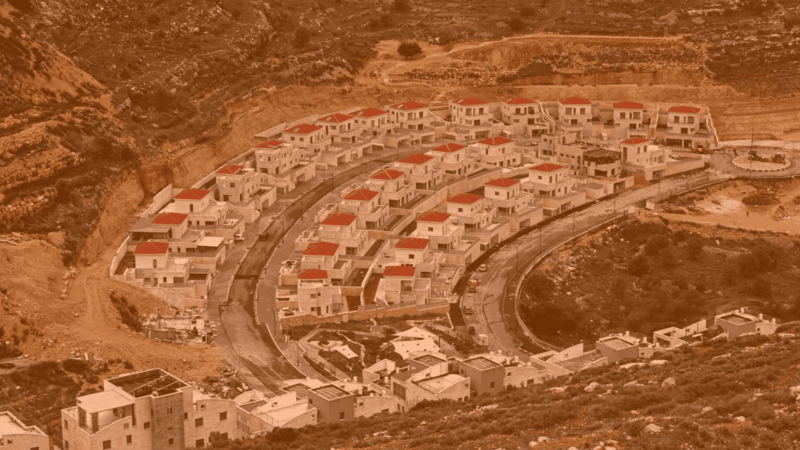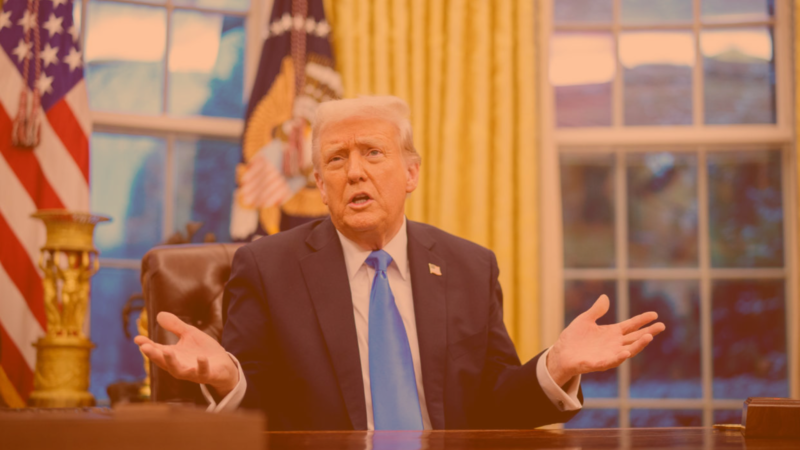Mr. President,
On January 4, you used your annual New Year’s speech to the press to express great concern about the circulation of fake news on the Internet.
As a specialist in the field and a committed citizen, I can only thank you for having opened this crucial debate for the preservation of modern democracy.
I must, however, ask you to clarify certain elements of your speech, to dispel some misunderstandings that it may have created and especially invite you to take into account in your reflection, some elements of the global context that promote the nuisance power of tendentious speech, propaganda and fake news.
In your speech, you attribute the recent eruption of fake news in the media field to the following:
“By a fascination for an absolute horizontality, we considered that all words could indeed be equal and that their regulation was inevitably suspect as mere choice”.
adding:
“This is not the case, not all words are equal.”
Now, in the country which you represent, it is established since the Declaration of the Rights of Man and of the Citizen of 1789 that:
“The free communication of thoughts and opinions is one of the most precious rights of man: every citizen can therefore speak, write, print freely, but shall be responsible for such abuses of this freedom as shall be defined by law…”
Let us dispel misunderstandings, Mr President, since, unfortunately, your speech lends itself to misinterpretation, and clarification seems necessary. Can you confirm that in speaking of the “fascination for absolute horizontality,” you are not referring to the principles that inspired the Declaration of Rights of Man and of the Citizen: and that by saying that all words are not equal, you do not mean to say, in the exercise of your functions, that all speakers do not have the same rights of free speech?
As a democrat, I am obliged to teach my students that all words are equal, that all speakers have the same right to speak. However, I agree with you on one point: it is true that not all speeches are equal. Our democratic life is defined in its very essence by the exercise of a continuous discursive practice that allows citizens to collectively construct epistemic, moral and deontic judgments. It is, indeed, through speech, or rather through ‘speech acts’, that we manage to decide together what is true, what is right and what it is necessary to do. However, for the democratic process to be honest, correct and useful, the discourses that animate it must have an unavoidable characteristic: they must be falsifiable. A falsifiable discourse is a precise discourse, where referents are identifiable, where all the predications are openly supported by the speaker or attributed to clear sources, where all the argumentative relations are explicit. These characteristics, which relate public discourse to scientific discourse, allow discourses to be contradicted through argumentation – rather than authority – and to be overtaken, if need be. These two properties allow public debate to remain both healthy and lively.
In this perspective, your opposition between the authority of the journalist and the unreliability of “any blogger” can sound simplistic.
The authority of a speaker, Mr. President, does not derive from his social status, but from his effort to be honest.
There are unofficial discourses constructed with all the responsibility demanded and official speeches that do not fulfil the conditions of acceptable speech in public debate; the evidence, Mr. President – I’m sorry to say – is in your very address to the press. Although official, your speech is not exempt from the typical vices of toxic discourse: you refer, for example, to “a strategy and a strategy financed” by “powers” in “certain illiberal democracies” as the source of the spread of fake news. By saying that, Mr President, you create alarm without taking responsibility. The object of your accusations being unclear, no one will ever falsify your speech, but you will achieve the effect of making us feel threatened.
Another example from your speech: you say that the rise of fake news:
“Is very often used by powers that somehow take advantage of the weaknesses of democracy, its extreme openness, its inability to sort, to prioritize, to basically recognize a form of authority. ”
In saying that the extreme openness of democracy is a weakness, Mr President, you allow us to infer your intention to limit this openness, without however taking responsibility for what you said. The Democrats will not be able to accuse you of having made liberticidal remarks, but the pathway to liberticidal speech acts will have been opened.
I do not take a position, Mr President, on the nature of the measures you have announced: others have done so by showing that they add nothing to the existing legislation, that the very notion of ‘fake news’ is vague, ambiguous, and lacking in precise reference; and that therefore any prohibition on the dissemination of information based on the idea of fake news is incompatible with international standards defining the restriction of freedom of expression.
However, I will allow myself a few general considerations: you open, by tackling this subject, a fundamental debate of our time, the debate on the government – or governance, as we have been saying for some time – of the digital revolution. This is a broad and complex debate about a radical change affecting our entire civilization, not just the manipulation of the electoral game that you have placed at the centre of your speech.
As a citizen, I wonder if we can tackle this issue by continuing to ignore the fact that we have let the industry manage the digital revolution, that we have allowed the giants of the web to gain monopoly positions by feeding them citizens’ data that politics did not want to protect; that we do nothing against the filter bubbles that manipulate and pervert public debate even more than the spread of fake news; that we allow digital businesses to dictate the selection, format, design, framework, and timing of information dissemination (whether false or true); that we have not been able to create the right conditions to rethink the education of young people and continuing education in the light of this revolution, leaving citizens bereft of any critical thinking or critical tools to meet the impact that this radical change has on their personal lives as on their public life.
DiEM25, the movement to which I have the honour and the pleasure of belonging, confronts all these themes within the general framework of a reflection on the democratization of the economic, ecological, cultural and strategic foundations of our society. And we do it by adopting a participative democracy approach. We consider that in the effort to democratize the foundations of our society, an effort that you seem to support, all citizens must be involved in the public debate, not only because, as our fathers taught us, all words are equal, but because all the words, or better still, all the responsible words, are necessary to this end.
DiEM25 is committed to marshal these words, Mr. President: I very much hope that you will be able to listen to us.
In asking you to accept my New Year message, allow me to close by wishing you the opportunity our motto recalls, to “pick the moment” that makes you a true defender of democracy: Carpe DiEM, Mr. President.
Paola Pietrandrea
Linguist
Member of DiEM25’s Coordinating Collective
Do you want to be informed of DiEM25's actions? Sign up here















